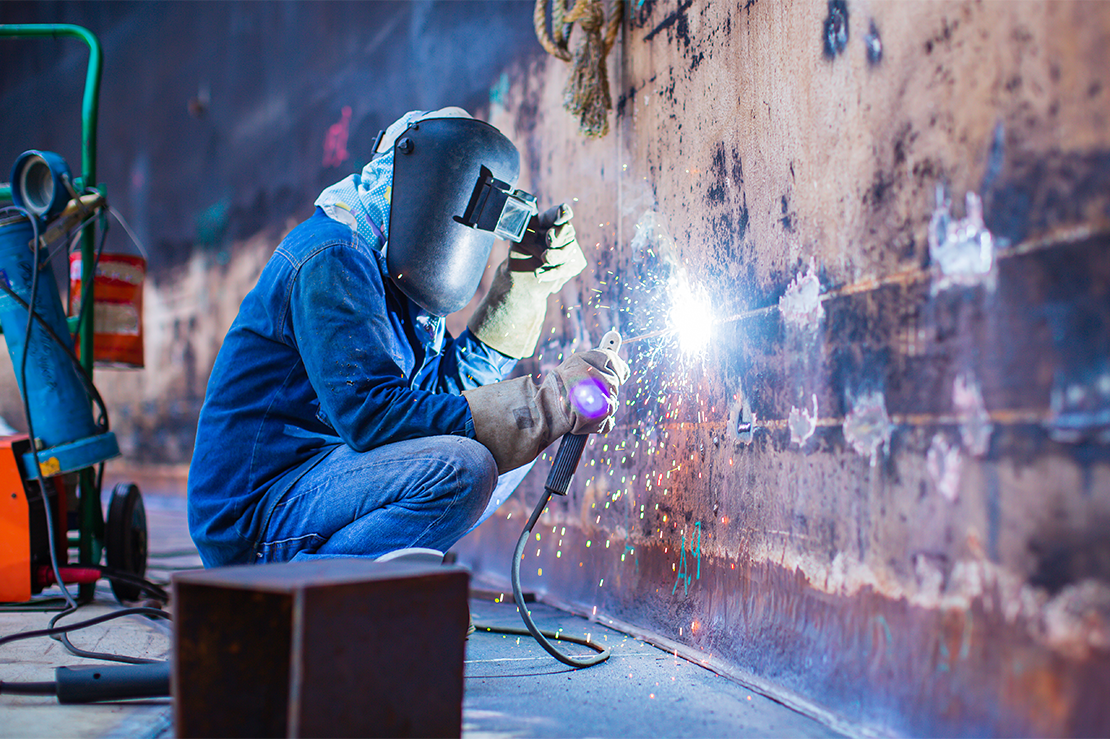Why Hiring Experts for Weld Shop Maintenance Is Essential for Ensuring Safety, Quality, and Optimal Performance

A properly maintained weld shop is a necessity in industrial, residential, and commercial applications where precision, safety, and efficiency are paramount. Neglecting welding equipment can result in safety hazards, substandard welds, production downtime, and expensive downtime.
Maintenance of welding machines guarantees productive manufacturing in plants, structural safety in homes, and regulatory compliance in commercial structures. Professional weld shop maintenance investment avoids breakdowns, boosts safety, and ensures optimum long-term dependability in all three industries.
In this blog, we will discuss why the involvement of weld shop maintenance experts is critical to achieving safety, quality, cost-effectiveness, and organizational reliability.
Safety: Preventing hazards in the workplace
Welding involves strong heat, electricity, and poisonous fumes, ensuring safety tops the list. Faulty welding equipment results in:
- Short circuits and electrical faults.
- Gas leaks and risk of fire.
- Injuries to operators through equipment failure .
- Exposure to poisonous fumes due to inadequate ventilation.
Welding machine maintenance by professional technicians establishes all protective measures. They test electrical circuits, inspect gas flow systems, and ensure the effectiveness of ventilation, lowering accident probabilities.
Further, specialists confirm compliance with trade regulations such as OSHA safety standards to safeguard the plant staff and the facility as well.
Quality: Maintaining Uniformity of Welding Production
Precision is the soul of quality welds. Neglecting maintenance results in:
- Poor welds compromise structure strength.
- Compromised arc control and accuracy issues.
- Excessive spatter and material loss.
Through machine calibration for welding, voltage control adjustment, and properly replaced parts, skilled technicians improve weld quality and minimize flaws. Through their expertise, each weld will meet industry standards, and rework and production downtime will be decreased.
Maximum Performance: Achieving Productivity & Efficiency
Machine downtime stops production and incurs additional expenses. Common issues attributed to inadequate maintenance are:
- Interruptions in production caused by repeated breakdowns.
- Power supply instability in weld penetration.
- Higher energy consumption and operating costs.
- Preventive maintenance guarantees effective machine functioning, reducing downtime and increasing productivity.
Preventive maintenance of welding equipment regularly keeps equipment at peak performance. Technicians catch signs of wear before they become serious, lubricate and clean moving components, and inspect machine accuracy, which translates into uninterrupted productivity with little disruption.
Cost Effectiveness: Reducing Long-Term Expenses
Taking shortcuts on maintenance to save money tends to have the opposite effect. Regular servicing helps by:
- Extending equipment life, reducing replacement costs.
- Preventing breakdowns and costly repairs.
- Saving energy to reduce utility bills.
- Preventive maintenance keeps operations on budget and efficient.
Rather than spending money on expensive repairs or downtime, planned maintenance keeps companies on budget and keeps them operating as efficiently as possible.
Technical Skills: Seasoned Techs Know the Best
Different welders (TIG, MIG, Stick, Plasma Cutters) need special attention. Seasoned technicians offer:
- Precise calibration and software updates.
- Efficient troubleshooting to prevent downtime.
- Installation of original replacement parts and state-of-the-art repair techniques.
- IoT-based predictive maintenance enables real-time equipment monitoring, preventing failures before they occur.
Moreover, IoT-based predictive maintenance is being implemented in contemporary weld shops to keep track of equipment conditions in real-time. Machine data can be analyzed by skilled technicians and breakdowns prevented beforehand, resulting in maximum efficiency.
Workplace Reliability: Keeping Things Running Smoothly
An efficiently running weld shop is one where:
- Machines run without any surprise breakdowns.
- The laborers are working in a functional and secure ambiance.
- Smooth operations are carried out, against the deadlines of customers.
Maintenance engineers are trained to generate schedules of preventative maintenance, manage weld machine performance, and maintain safety inspections to confirm work reliability at workplaces.
Conclusion
Welding machine maintenance isn’t repairs—it’s safety, quality, efficiency, and cost savings. Hiring expert professionals guarantees:
- A safe work environment.
- Quality, reliable welds.
- Greater productivity and less downtime.
- Long-term cost savings.
Investing in professional maintenance is the answer to a safe, efficient, and productive weld shop. Accurate welding machine maintenance enables businesses to achieve optimum uptime, maintain industry standards, and reach operational excellence.
At UPSFM, we are committed to safe, efficient, and high-performance weld shop operations by way of skilled maintenance solutions. With technology as our core strength, we promote safety, quality, and reliability, reducing downtime and maximizing output in industrial, residential, and commercial segments. Know more at www.upsfm.com.
Have any feedback or questions?
Contact us!




